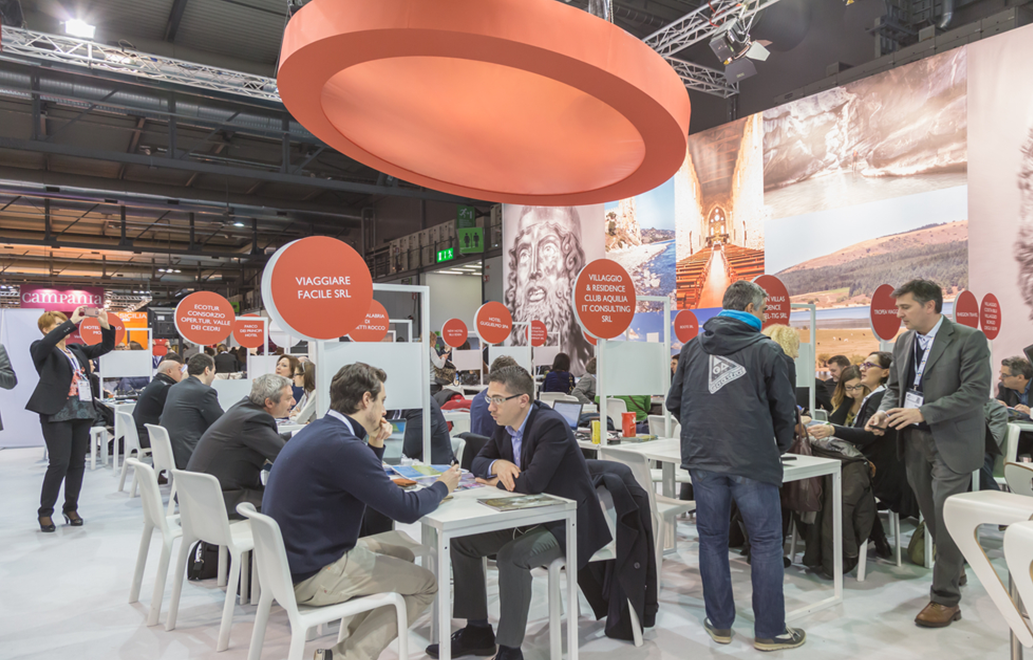Just How Event Production Works: A Comprehensive Take A Look At the Process
Event production is a complex and structured process that requires careful preparation and implementation. It starts with developing clear purposes and recognizing the target market. Each action, from budgeting to location choice, plays a critical duty in making certain success. As the procedure unravels, different aspects should align perfectly. The subtleties of this elaborate operation often go undetected. What are the vital stages that add to a memorable event?

The Preliminary Preparation Phase
When beginning on event production, careful preparation is important to ensure an effective end result. The first drawing board functions as the structure for all succeeding initiatives. During this phase, event producers should define the event's purpose and goals clearly. Determining the target audience assists tailor the experience and messaging, guaranteeing significance and engagement.Producers need to likewise think about the event style, whether it be in-person, online, or hybrid, as this will affect various logistical components. Selecting a suitable day and place is crucial, as it influences accessibility and availability.Furthermore, putting together a reputable group is essential for dividing responsibilities and streamlining interaction. Establishing a timeline with milestones guarantees all jobs are finished on time. This stage entails thorough study, including recognizing possible difficulties and devising approaches to minimize dangers. Ultimately, a well-structured first preparation phase sets the tone for an effective event production journey.

Budgeting and Resource Allocation
In event production, reliable budgeting and resource appropriation are important for success - event production charlotte. Establishing economic specifications establishes the foundation for all succeeding decisions, while source distribution methods ensure that every component of the event is effectively sustained. With each other, these components assist maintain control over expenses and optimize making use of offered sources
Developing Financial Parameters
Establishing monetary parameters is essential to the success of any type of event production, as it establishes the structure for reliable budgeting and resource allowance. This process starts with specifying the overall spending plan, which incorporates all elements of the event, consisting of venue expenses, catering, and advertising. By recognizing available funds, event coordinators can focus on expenses and allocate resources as necessary. Furthermore, it is vital to perform thorough market research study to prepare for possible costs and determine financing resources, such as sponsorships or ticket sales. Establishing clear financial specifications likewise aids in risk administration, enabling coordinators to reserve backup funds for unanticipated expenditures. Ultimately, a well-defined budget functions as a roadmap, directing the event production team towards achieving their goals while maintaining financial control.
Resource Distribution Strategies
Effective resource circulation strategies are essential for maximizing the impact of an occasion while sticking to budget plan restrictions. Successful event production requires a meticulous approach to budgeting and source appropriation. Organizers need to focus on vital elements such as venue, catering, and modern technology, making certain that funds are designated to areas that enhance participant experience. A thorough budget plan ought to describe anticipated costs and determine locations for possible expense savings, such as bargaining with vendors or exploring sponsorship possibilities. Furthermore, tracking expenditures throughout the preparation process helps protect against overspending. By utilizing strategic source distribution, event manufacturers can provide a remarkable experience while preserving fiscal duty, ultimately adding to the overall success of the event.
Place Choice and Logistics
Choosing the ideal venue is necessary to the success of any type of event, as it establishes the stage for the general experience. Venue choice involves examining various aspects, consisting of capability, accessibility, and place. Organizers should consider the target market and the nature of the event, ensuring the location straightens with the event's goals.Logistics play a significant function in this procedure, involving plans for seats, audiovisual tools, and catering solutions. An appropriate venue must facilitate smooth flow for guests and staff, improving engagement.Additionally, evaluating possible venues for features like parking, washrooms, and emergency situation departures is necessary for safety and comfort. The timeline for securing the place is additionally critical, as prominent areas may reserve promptly - event production charlotte. Thorough planning and prompt implementation can inevitably add to a smooth event experience, making location choice and logistics essential elements of successful event production.
Creative Concept Development
While the place establishes the physical phase, innovative idea advancement shapes the event's identity and story. This procedure begins with determining the event's purpose and target audience, permitting event manufacturers to create an engaging style that resonates with attendees. Conceptualizing sessions usually consist of varied point of views, fostering innovative concepts that line up with the event's goals.Once a theme is established, aesthetic aspects such as color schemes, signs, and design are developed to boost the total environment. Storytelling strategies may also be incorporated to produce an engaging trip for participants, guaranteeing a remarkable experience. Furthermore, factors to consider pertaining to enjoyment, activities, and interactive parts are lined up with the chosen principle, strengthening the theme throughout the event.Ultimately, reliable creative principle advancement warranties that every facet of the event works cohesively, leaving a long-term perception on participants and satisfying the event's purposes. This foundational job prepares for succeeding planning and execution phases.
Collaborating With Suppliers and Suppliers
Effective event production rests on efficient cooperation with vendors and vendors. Picking trustworthy companions, working out agreements effectively, and making sure prompt deliveries are important action in this process. Each of these aspects adds significantly to the general success and smooth implementation of an occasion.
Selecting Reliable Partners
Just how can event organizers guarantee a seamless production experience? Picking reliable partners is necessary in attaining this objective. Event planners should conduct comprehensive research to identify suppliers and suppliers with a proven record of quality. This includes checking recommendations, evaluating profiles, and evaluating client comments. Organizers should focus on partners who show professionalism and trust, timely interaction, and a readiness to collaborate. Building strong relationships fosters trust and enables quick problem-solving during the event. In addition, it is useful to select regional vendors who understand the venue and local logistics. go to my blog Inevitably, an effective event rests on the synergy between planners and their companions, making certain that every element of production runs smoothly and efficiently.
Negotiating Agreements Properly
Efficient settlement of contracts is a vital action in the partnership between event organizers and their suppliers and providers. This procedure entails clear communication of expectations, deliverables, and timelines. Organizers must conduct thorough study on market rates and industry criteria to establish a standard for settlements. It is essential to develop a collective atmosphere, urging open dialogue concerning terms, prices, and potential backups. Planners must also focus on comprehending the supplier's abilities and constraints to align their demands successfully. Flexibility can cause mutually valuable agreements, cultivating long-term connections. Crafting well-defined contracts that consist of particular efficiency metrics can help ensure liability, eventually bring about successful event execution and satisfaction for all events involved.
Guaranteeing Prompt Deliveries
Timely shipments are essential for the smooth execution of any kind of event, requiring persistent cooperation in between planners and their vendors and vendors. Effective communication is crucial, as it aids develop clear expectations concerning shipment timetables, amounts, and specific demands. Coordinators usually create comprehensive timelines to detail essential milestones, guaranteeing all celebrations stay straightened throughout the procedure. Normal check-ins with suppliers can help identify potential delays early, allowing for proactive solutions. Additionally, building strong connections with trustworthy distributors cultivates trust and liability, which can result in better service and prioritization. By prioritizing these collaborative initiatives, organizers can decrease disturbances, consequently improving the overall effectiveness of event production and making sure that all needed materials and services arrive as planned.
Marketing and Promo Approaches
While arranging an event, the success of advertising and marketing and promo techniques can greatly affect attendance and involvement. Efficient strategies usually consist of a combination of electronic advertising, traditional advertising and marketing, and grassroots outreach. Using social networks systems permits real-time communication and targeted marketing, getting to specific demographics effectively. Email marketing projects can additionally involve potential attendees with individualized content and reminders.Collaborations with influencers or market leaders can additionally boost integrity and widen reach. Developing appealing content, such as videos or blog sites, helps to create buzz and receive rate of interest leading up to the event. Additionally, leveraging early-bird discount rates and special perks can incentivize ticket purchases.Promoting with typical channels, such as posters or regional media, stays pertinent, especially in community-focused events. A detailed approach that integrates several approaches guarantees maximum exposure and interaction, inevitably adding to the event's success and the creation of a memorable experience for attendees.
On-Site Execution and Administration
On-site implementation and monitoring are crucial parts that determine the overall success of an event. Effective coordination during check these guys out the event guarantees that all elements align with the planned agenda. Event managers oversee logistics, including vendor coordination, tools arrangement, and visitor solutions. Monitoring timelines and resolving any type of unanticipated concerns are basic for keeping a seamless experience.The staff plays a considerable function, as experienced workers are liable for numerous jobs such as registration, details dissemination, and technical assistance. Interaction look here among employee is important; it fosters a collaborative setting and allows quick resolution of challenges.Additionally, safety methods need to be complied with, safeguarding the health of all participants. Post-event assessments are also component of on-site administration, offering understandings for future enhancements. By focusing on these facets, event producers can create remarkable experiences that satisfy or exceed participant expectations while attaining the event's goals.
Frequently Asked Inquiries
How Do I Pick the Right Event Theme?
Selecting the ideal event theme entails thinking about the target market, event function, and place. Investigating existing patterns and collecting input from stakeholders can likewise motivate creative concepts that resonate and produce a remarkable experience.

What Are Usual Blunders in Event Production?
Typical errors in event production typically include insufficient planning, poor communication amongst group members, budget mismanagement, neglecting to think about the target market's requirements, and failing to perform a comprehensive post-event evaluation for future renovations.
Just How Can I Determine Event Success?
To measure event success, one can assess guest complete satisfaction, engagement degrees, spending plan adherence, and post-event comments. Key efficiency indicators, such as ticket sales and social media sites communications, also give important insights right into overall performance.
What Should I Do if It Moistens the Event Day?
In case of rain on the day, the coordinator must execute backup plans, such as safeguarding camping tents or moving tasks indoors. Interaction with attendees concerning changes is crucial to ensure a smooth experience regardless of weather condition obstacles.
Exactly How Can I Make Certain Guest Involvement During the Event?
